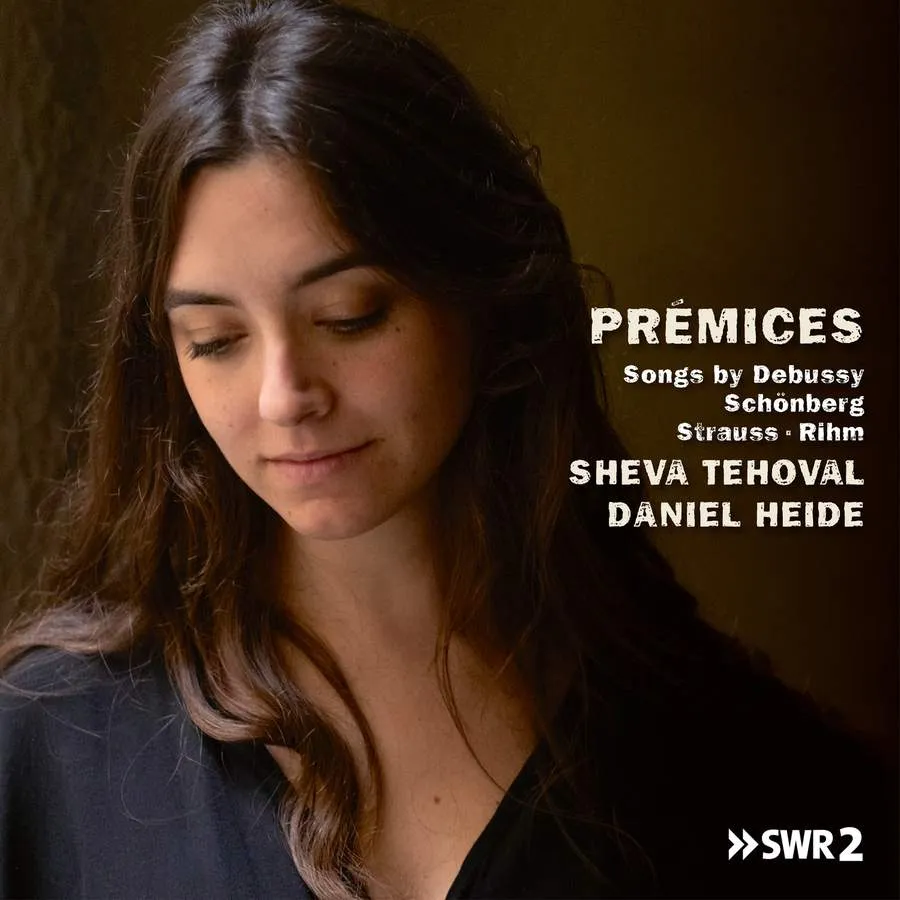
Prémices Debussy: Ariettes Oubliées; Coquetterie posthume etc; Rihm: Hölderlin-Gedichte; Schoenberg: Lieder, Op. 2; R Strauss: Mädchenblumen, Op. 22 Sheva Tehoval (soprano), Daniel Heide (piano) CAvi-music AVI 8553039 63:55 mins
Sheva Tehoval is Belgian by birth and a former student of tenor Christoph Prégardien in Cologne, so you would expect her to feel at home in a programme of both French and German songs. That said, and while her high-flying, super-secure and beautifully clear soprano voice gives her plentiful options in either repertoire, there’s no mistaking where her instinctive roots lie. Debussy’s cycle Ariettes oubliées (Forgotten Songs) at once showcases Tehoval’s rapport with the composer’s soundworld of poised sensuality and tonal finesse; she finds poignancy in ‘Il pleure dans mon coeur’, then sparky verve in ‘Chevaux de bois’. Twin highlights in the closing second group of Debussy items are ‘Beau soir’ (its mood of dreamy rapture exactly caught) and ‘Coquetterie posthume’ (roguish to the manner born).
In her choice of German-language songs, with their need for more demonstrative expression, Tehoval’s upper-register tone sometimes tightens a little too much. But again her interpretations ring true: Strauss’s Mädchenblumen (Girls’ Flowers) cycle feels fresh and spontaneous, and while Schoenberg’s set of late-Romantic Lieder Op. 2 ideally require a larger voice, their close-to-decadent expressive world is well captured.
For a present-day composer to create a modern counterpart to this kind of classic song repertoire is a difficult challenge, but it can be done, as Tehoval shows us in Wolfgang Rihm’s Three Hölderlin Poems of 2004. Daniel Heide’s accompaniments are at every point immaculately weighted and shaded both in relation to the music itself, and to its gifted singer. Minor irritant: the CD booklet has the song texts, but no translations.
Malcolm Hayes
More reviews
Schubert: Arpeggione Sonata (arr. Tabakova)
Kuula: South Ostrobothnian Suite No. 2;